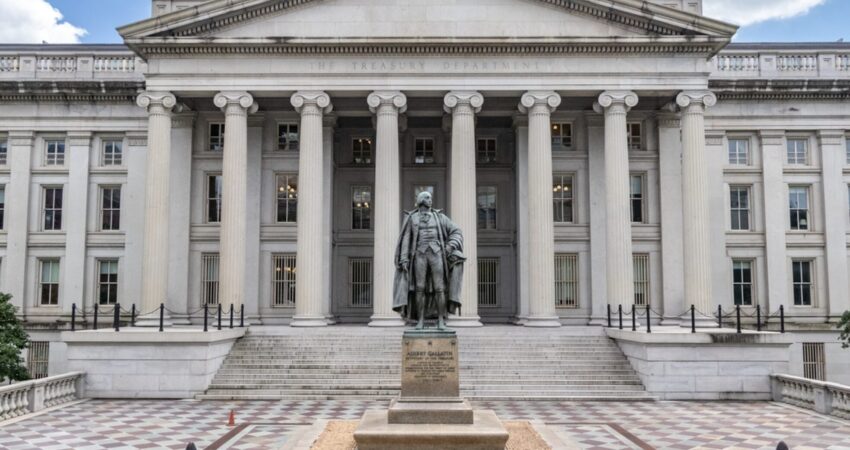The ominous milestone of the U.S. national debt crossing the $34 trillion mark has stirred concerns, signaling a dire financial predicament for the nation. In just a span of three months after surpassing the $33 trillion threshold, the Treasury Department revealed this startling escalation. Concurrently, projections indicate a tripling of the federal government’s borrowing costs on the debt within the next decade, a trajectory causing alarm, as reported by Fox Business citing the Committee for a Responsible Budget. The predicted ascent in debt payments from $475 billion to a staggering $1.4 trillion by fiscal year 2032 and a staggering $5.4 trillion by 2053 paints a bleak financial future.
House Speaker Mike Johnson (R-LA) emphasized the urgency, labeling the national debt as the paramount threat to America’s national security. He stressed the imperative for bipartisan responsibility in curbing spending and redirecting the country towards fiscal prudence. The startling statistics affirm the severity of the issue, depicting the national debt as an imposing burden, equivalent to $100,000 for every individual in the U.S., as noted by Mississippi State Auditor Shad White. Moreover, the debt-to-GDP ratio is hovering at its highest since the post-World War II era, signaling alarming economic instability.
However, responses to this financial crisis have sparked political sparring, with the White House attributing the debt surge to tax breaks for corporations and casting blame on Republicans. White House Assistant Press Secretary Michael Kikukawa asserted that the mounting debt is a consequence of Republican-driven corporate incentives, aiming criticism at the GOP for exacerbating the situation. Kikukawa underscored President Biden’s commitment to trim the deficit by $2.5 trillion through measures that target equitable tax contributions from the affluent and major corporations while curbing expenses tied to special interests.
Criticism of Biden’s fiscal policy reverberated across party lines, with Sen. Rick Scott (R-FL) lambasting Biden’s spending habits and accusing him of severely impacting the country. Scott took to social media to highlight the stark reality of the escalating national debt under Biden’s tenure, citing a rapid increase from $27 trillion to $34 trillion in a mere 105 days. The historical trajectory of increasing debt under various presidential administrations, spanning from Calvin Coolidge to recent times, illustrates a bipartisan issue that has persisted across different leaderships, with notable surges during the tenures of several presidents including Franklin D. Roosevelt, Ronald Reagan, George W. Bush, and Barack Obama.
The looming deadline for Congress to reach consensus on new department budgets after a temporary spending bill was passed in November adds urgency to the situation, aiming to avert a government shutdown. This dire fiscal predicament demands immediate bipartisan action to address the spiraling debt, emphasizing the imperative for fiscal responsibility and prudent financial management to safeguard the nation’s economic future.





